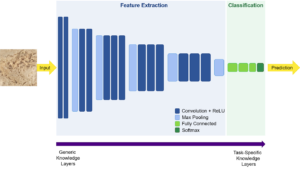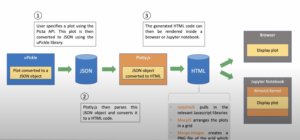
Marta Marchegiano(Postdoc, 2019-2021)
“I did my first postdoc at John lab where I learnt about the clumped isotope technique. Cédric is a very thoughtful and knowledgeable supervisor, he always took the time to teaching me about this exciting thermometer. Thanks to his enthusiasm I became very passionate about carbonate geochemistry and this experience was an important stepping stone for my future career. “

Niranjana Sundararajan (MSc Student, 2022)
"Working on my MSc thesis with Cedric as my supervisor was the most interesting, productive and challenging part of my academic experience at Imperial. Cedric is an excellent supervisor- providing constant support, direction and the encouragement necessary to reach research goals."

Adhipa Herlambang (PhD Student, 2018-2021)
"It was a great honor to be part of the amazing John Lab. Participating in the clumped isotope lab during my Ph.D. was an immensely satisfying experience in many ways. It allowed me to develop a series of learning experiences in a very friendly atmosphere."

Qi Adlan (PhD Student, 2019-2022)
"Working in John Lab makes me feel engaged and valued. Cedric is very knowledgeable and kind — he helped me reach my full potential to become an independent researcher."

Sarah Robinson (PhD Student, 2019-2022)
"Over the course of my time with John’s Lab I have benefited from a strong and diverse group of peers. I have gained knowledge in not only my own field, but the fields of my peers through discussions in bi-weekly lab meetings. I will miss working within John’s lab as I move onto my next chapter."

John MacDonald (Postdoc, 2013-2015)
“I had a great time working in the John Lab. Cedric was a fantastic mentor to me as a postdoc, and he really helped me in getting to my current career stage as a Senior Lecturer in Earth Sciences at the University of Glasgow.”

CoNuS: Concurrent Numerical Simulations
CoNuS stands for "Concurrent Numerical Simulations", but the name also refers to conus sp, a genus of predatory sea snails (hence the CoNuS logo). CoNuS is a generic library for numerical stepwise modelling, and it is written in Scala. CoNuS is part of the Carbonate Shells numerical toolset, and it is currently experimental software, with active testing and coding in progress within Cédric John's research group at Imperial College London. This means that code written using CoNuS is susceptible to break in future releases as the API is not fully stable yet.

Transfer Learning for Geological Images
Description This is the repository for the code in Dawson et al 2022. This code can be used to easily...

Easotope: Clumped Isotopes made easy
Easotope is free software written in Java. With Easotope, you can easily open files from mass spectromers vendors, automatically process...

Picta: A graphing library for the Scala Programming language
Picta is a graphing library for the Scala programming language. It has an easy to use API that is close...

